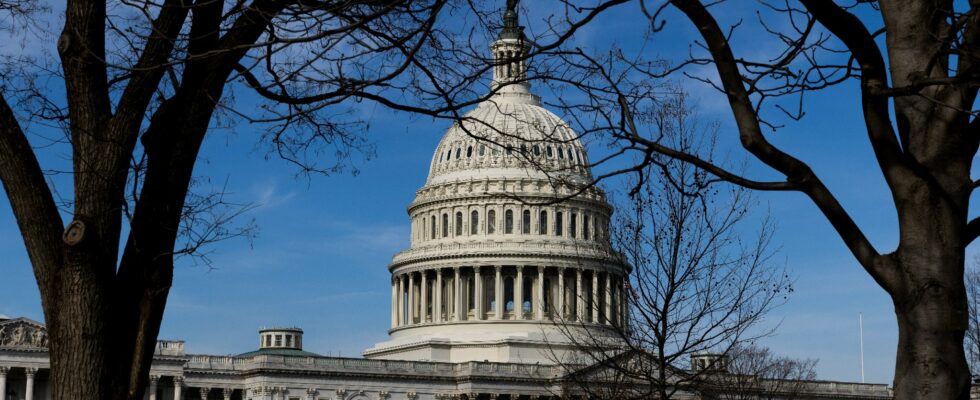Across the Atlantic, it’s becoming a habit. The threat of a shutdown is once again looming over the United States. After the announcement of the postponement of the vote on the 2025 Budget scheduled for this Wednesday, September 11 by the House of Representatives, Democrats and Republicans now have only a few weeks to find a compromise. In the event of failure, the country’s operations will be slowed down from October 1, the end of the fiscal year. Congress therefore has no choice but to act if it wishes to avoid a shutdown just a month and a half before the presidential election.
The paralysis of the administration
But what is a “shutdown”? Literally translated as “closure”, a “shutdown” is a measure devised by the American Constitution when Congress fails to vote on the Budget. The government then finds itself unable to pay its administration and the latter is, in fact, paralyzed. Millions of civil servants deemed non-essential are thus put on technical unemployment, certain food aids suspended and air traffic disrupted, not to mention the many other consequences resulting from slow operation. During the “shutdowns” of 2013 and 2018, out of the 2.1 million federal employees (excluding the postal service), approximately 850,000 were put on technical unemployment.
A situation that could be repeated within three weeks, given the current political rivalries within the country. After a six-week summer break, lawmakers returned to the Capitol on Monday, September 9, without taking with them any major diplomatic resolutions. Since two days later, the Speaker of the House of Representatives Mike Johnson, failed to obtain sufficient support to pass a six-month extension of the Budget. The cause, the addition of an anti-immigration measure known as the SAVE law proposed under the impetus of Donald Trump and members of the Republican Party. However, within the Grand Old Party itself, this measure is not unanimous, which is why the vote on the Budget was postponed. This Wednesday, at least 10 Republicans voted against it, while only four dissenting votes from the party are tolerated to pass a text without needing the votes of the opposition.
Trump (almost) alone against all
This SAVE bill, which Democrats and some Republicans are opposed to, provides for the need to present proof of American citizenship to vote in elections. A provision on which the 45th President of the United States is not about to retract, convinced, despite the lack of evidence, of having been the victim of electoral fraud in 2020. According to him, the presidential election next November could therefore also be influenced by the vote of migrants who illegally crossed the border between the United States and Mexico. A claim that the Democratic Party denies, fearing moreover that this measure will dissuade Americans from voting and that electoral offices will be imposed significant administrative burdens.
In the event that the 2025 Budget coupled with the SAVE Act is finally adopted by the House of Representatives, it would quickly come up against the wall erected by the Senate. Since the institution is controlled by a majority of Democrats, it would not give the green light required before the American president signs it. On the contrary, the party of candidate Kamala Harris is even considering giving an ultimatum to the Republicans in the House of Representatives: adopt a text extending the deadline or cause a “shutdown”. A situation feared by some Republicans who fear being blamed for the paralysis, and therefore not being re-elected in the next elections.
A story punctuated by “shutdown”
And the United States is used to these political disagreements. Since 1976, the country has experienced 21 shutdowns. The most recent: that of December 2018 and January 2019, which lasted 35 days, due to the Democrats’ refusal to vote for funding for the wall on the border with Mexico. A record under the presidency of Donald Trump, but not in the history of the country. Currently, Ronald Reagan, the 40th President of the United States, holds a historic record with eight shutdowns during his two terms, from 1981 to 1989. But in 2024, a shutdown can still be avoided. With the federal government’s fiscal year ending on September 30, Congress still has time to find a compromise voted on by both the House of Representatives and the Senate.
